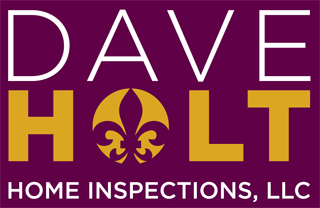Our physical capabilities change as we age, and the home we once moved through easily can become filled with potential hazards. Creating a safe environment is critical for seniors who want to maintain their independence at home. With a few simple adjustments, you’ll make your home safe for seniors, minimize risks, and support mobility for the elderly in your home.
Fall Prevention is Critical to Make a Home Safe for Seniors
Falls are the leading cause of injury among seniors, so fall prevention is a top priority. To reduce the risk, make sure all walkways, hallways, and rooms are free of obstacles like loose rugs, electrical cords, and clutter. If your loved one uses a walker or cane, ensure there is plenty of space to move around without bumping into furniture.
Install handrails along staircases and in hallways to provide extra stability. In areas like bathrooms, non-slip mats should be placed in showers and tubs. Adding grab bars near the toilet and in the shower can also offer additional support where seniors are most vulnerable.
Lighting is another critical factor in preventing falls. Make sure all areas of the home are well-lit, especially staircases and entryways. Installing nightlights can help seniors navigate their homes at night, reducing the risk of missteps.
Kitchen Tips to Make Your Home Safe for Seniors
If the kitchen is not properly set up, it can be dangerous for seniors. Keep all essential items, such as pots, pans, and frequently used utensils, within easy reach to prevent unnecessary bending or stretching. Rearranging shelves or installing pull-out cabinets can make access much simpler.
Appliance safety is another important factor. To prevent fires, make sure stoves have easy-to-use controls and install automatic shut-off devices on cooktops. Keeping countertops clear of clutter can also help prevent accidents in the kitchen, especially if there are open flames.
Emergency Preparedness: Staying Safe During Unforeseen Situations
In addition to making the home physically safe, it’s important to have an emergency plan in place. Seniors should have easy access to a phone at all times. Make sure all important phone numbers, like those for emergency services and nearby family members, are visible and easy to dial.
Set up a monitoring system, especially if the senior lives alone. Video doorbells and security cameras can help keep track of who is coming and going from the home. Smoke and carbon monoxide detectors should be regularly tested to confirm they are in good working order, and fire extinguishers should be accessible throughout the home.
Creating a safe home environment for seniors doesn’t have to be difficult. With these tips, you’ll provide your senior loved one with a space that supports their independence while reducing the risk of accidents. Thoughtful modifications today will create a safer, more comfortable living space as they continue to enjoy life in their home.
FAQs on Making a Home Safe for Seniors
How can I make the home safer for seniors with vision impairment?
For seniors with reduced vision, it’s important to make all paths visible. Choose high-contrast colors for stairs and furniture, as these will be easier to spot. Installing tactile markers on stair edges or at door thresholds can also help. Motion sensor lighting is especially useful, illuminating spaces automatically when a senior enters, reducing the risk of tripping in the dark.
Are there specific modifications to help seniors with hearing loss?
For seniors with hearing impairments, visual and tactile alert systems are vital. You can install strobe light smoke detectors or fire alarms that flash when they detect smoke. Adding doorbell signals with a flashing light or vibrations will help them be aware when someone is at the door. If they use a hearing aid, make sure all communication devices are compatible with it.
What should I do if a senior falls? How can I prepare for that?
While it’s impossible to completely eliminate the risk of falls, preparation is key. Make sure emergency numbers are visible in multiple locations around the house. Install fall detection devices or personal emergency response systems that can alert caregivers or medical services immediately. After a fall, it’s important to remain calm, check for any injuries, and if necessary, call emergency services. Practice having a fall response plan so seniors feel more confident knowing help is readily available.
Dave Holt Home Inspections provides inspection services in New Orleans and the surrounding areas. Contact us to request an appointment.

